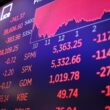CoinDCX has become the most valuable crypto exchange in India following the $135 million raised in a Series D fundraising. The exchange is currently valued at $2.15 billion.
CoinDCX intends to use a portion of its recent financing to hire new employees and talent. India’s first cryptocurrency unicorn, CoinDCX, wants to triple its workforce by the end of the year, according to Sumit Gupta, CEO, and Co-Founder.
In an interview with Forkast, Gupta stated,
“We believe that there are a lot of products that we want to build for the country and so we will continue to ramp up our product engineering team.”
With Indian tax policies hindering crypto growth in the country, CoinDCX intends to double down on compliance.
Gupta shared his opinion by saying,
“I think it’s not a question of ‘if’ but ‘when’ India will regulate crypto. Until that time, exchanges will continue to work on taking the industry forward, and educating the masses.”
CoinDCX will also increase hiring in order to improve its compliance processes. CoinDCX, according to Gupta, is already the most compliant crypto platform in the country. He claims that CoinDCX is self-regulated and adheres to all AML (Anti Money Laundering) and KYC (Know Your Customer) regulations.
Gupta says that when the government acknowledged virtual digital assets and crypto, understanding grew by huge leaps.
He said,
“We have seen significant improvement in terms of the understanding within the government. Now there are tax laws and two years back we were talking about a ban.”
From April 1st, 2022, India began its flat 30% tax on all crypto income. From July 1st, a 1% tax deducted at source (TDS) will be imposed on all transactions. Furthermore, the Indian government has stated that losses from one cryptocurrency cannot be used to offset gains made elsewhere. As a result, crypto investors and their money have fled to more welcoming nations.
Not only that, the tax policies have also resulted in a significant decline in trade volumes. Over the previous month, overall volumes on CoinDCX have dropped by around 30% to 35% on a daily average basis.
However, Gupta thinks this is not a pressing issue and will turn around quickly. He stated,
“I think these are temporary in nature”





